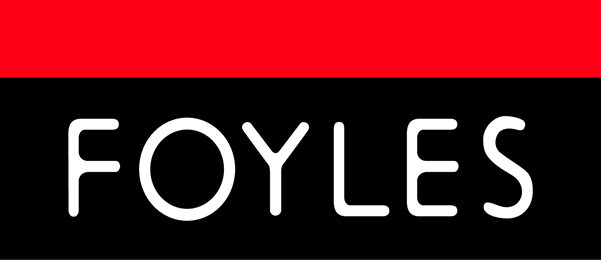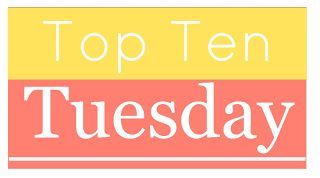
 Dear David Eddings,
Dear David Eddings,I never used to like reading. It was a chore I had to do for school, something so incredibly boring, I couldn't understand why anyone would want to do it for fun. There were certain stories that I read (because I had to) that I enjoyed, but those were very rare occurrences, and reading itself just wasn't for me. Until my dad handed me your Pawn of Prophecy, the first book in the Belgariad series.
Before he did so, I had been reading the Harry Potter novels. I loved them, but still didn't find any enjoyment picking up anything else. That series was a fluke, they were the only books I'd read for pleasure. But I would rave about them. My dad, a huge high fantasy fan, could see some similarities between what I loved so much about the Harry Potter books and the books he read. For weeks he tried to get me to read Pawn of Prophecy. He would go on about the sorcerers, and the evil god, and this orb of power, and the quest. In the end, I decided to read Pawn of Prophecy just to get him to stop. I'd prove him wrong; I'd read it, and I wouldn't like it.
I fell in love with it.
When I read Pawn of Prophecy, something clicked into place. It was like a revelation, like a curtain had been pulled away, and I thought, "Oh, so that's what reading is all about!" I can't tell you what it was about Pawn of Prophecy that suddenly turned me from a non-reader into a reader. Although the plots themselves are very different, there's nothing, genre-wise, too dissimilar between Harry Potter and Pawn of Prophecy that has me thinking, "That's what did it." Even when I re-read the Belgariad, which I've done several times over, there's nothing particularly spectacular about Pawn of Prophecy on it's own that I can see that caught my heart as it did. (Really, the whole series merges for me, I can never remember where one book ends and another begins until I read them, but I know on my recent re-read, as much as I still love Pawn of Prophecy, on it's own, I was thinking it's only the very beginning of the story; that the most amazing parts come much later.) But there was something about that book, and the ones that followed in the Belgariad, the Mallorean, and your other series, that had me wanting to read more and more - and unlike with Harry Potter, I wasn't just open to book by other authors, I needed them.
 And now, here I am, 16 years later, a completely avid reader. I've been running a blog devoted to reading for the past six years, I'm a bookseller, and I've read more books than I could ever imagine wanting to read before Pawn of Prophecy. Your book changed my life; I can't even imagine what I would be doing with the majority of my free time if it wasn't for your book. Maybe I would have found a different book that would have made me a reader, maybe I never would have. But I feel such such a rush of love for Pawn of Prophecy and it's characters whenever I think of them. Reading your books always feels like coming home to me, and I'm filled with an excited contentment whenever I open the pages. It's always difficult to answer the question, "What's your favourite book?" There are so many incredible novels, important, powerful novels, brilliantly entertaining novels I've read over the years, it's hard to choose just one. But I always say Pawn of Prophecy, because it will always have a place in my heart.
And now, here I am, 16 years later, a completely avid reader. I've been running a blog devoted to reading for the past six years, I'm a bookseller, and I've read more books than I could ever imagine wanting to read before Pawn of Prophecy. Your book changed my life; I can't even imagine what I would be doing with the majority of my free time if it wasn't for your book. Maybe I would have found a different book that would have made me a reader, maybe I never would have. But I feel such such a rush of love for Pawn of Prophecy and it's characters whenever I think of them. Reading your books always feels like coming home to me, and I'm filled with an excited contentment whenever I open the pages. It's always difficult to answer the question, "What's your favourite book?" There are so many incredible novels, important, powerful novels, brilliantly entertaining novels I've read over the years, it's hard to choose just one. But I always say Pawn of Prophecy, because it will always have a place in my heart.I'm so grateful to you and the books you wrote for opening my eyes to the wonder of reading, for providing me with a way to escape my own life when it was needed. It's weird to think and probably weirder to hear, but Garion, Polgara, Belgarath, Ce'Nedra, Barak, Silk and all the other characters in the Belgariad series feel like family, and it's so wonderful to have them welcome me back whenever I go for a visit through the pages. This letter doesn't really do any justice to how grateful I am, and I'm sorry for that.
I can only say, thank you for your words.
Jo
xxx

So who was the author who got you into reading? What was the book?Was was it about it that had you falling in love with reading? Tell me all! :)
 Some Girls Are by Courtney Summers - Climbing to the top of the social ladder is hard—falling from it is even harder. Regina Afton used to be a member of the Fearsome Fivesome, an all-girl clique both feared and revered by the students at Hallowell High... until vicious rumors about her and her best friend's boyfriend start going around. Now Regina's been "frozen out" and her ex-best friends are out for revenge. If Regina was guilty, it would be one thing, but the rumors are far from the terrifying truth and the bullying is getting more intense by the day. She takes solace in the company of Michael Hayden, a misfit with a tragic past who she herself used to bully. Friendship doesn't come easily for these onetime enemies, and as Regina works hard to make amends for her past, she realizes Michael could be more than just a friend... if threats from the Fearsome Foursome don't break them both first.
Some Girls Are by Courtney Summers - Climbing to the top of the social ladder is hard—falling from it is even harder. Regina Afton used to be a member of the Fearsome Fivesome, an all-girl clique both feared and revered by the students at Hallowell High... until vicious rumors about her and her best friend's boyfriend start going around. Now Regina's been "frozen out" and her ex-best friends are out for revenge. If Regina was guilty, it would be one thing, but the rumors are far from the terrifying truth and the bullying is getting more intense by the day. She takes solace in the company of Michael Hayden, a misfit with a tragic past who she herself used to bully. Friendship doesn't come easily for these onetime enemies, and as Regina works hard to make amends for her past, she realizes Michael could be more than just a friend... if threats from the Fearsome Foursome don't break them both first.
 The Baby by Lisa Drakeford (proof) - When Olivia opens the bathroom door, the last thing she expects to see is her best friend Nicola giving birth on the floor – and to say Nicola is surprised is an understatement. She’s not ready to be a mum, and she needs Olivia’s help. But Olivia has her own problems – specifically her bullying boyfriend, Jonty, and keeping an eye on younger sister Alice. And then there’s Nicola’s friend Ben, who’s struggling with secrets of his own … From Goodreads.
The Baby by Lisa Drakeford (proof) - When Olivia opens the bathroom door, the last thing she expects to see is her best friend Nicola giving birth on the floor – and to say Nicola is surprised is an understatement. She’s not ready to be a mum, and she needs Olivia’s help. But Olivia has her own problems – specifically her bullying boyfriend, Jonty, and keeping an eye on younger sister Alice. And then there’s Nicola’s friend Ben, who’s struggling with secrets of his own … From Goodreads.
 Life on the Refrigerator Door by Alice Kuipers (review copy) - Mom,
Life on the Refrigerator Door by Alice Kuipers (review copy) - Mom, How the Library (Not the Prince) Saved Rapunzel by Wendy Meddour & Rebecca Ashdown (review copy) - Rapunzel sits alone in a tall tower block, and no one - not the postman, the baker, her auntie or even the prince - can bring back her sparkle. But when Rapunzel does finally open the postman's letter it contains an amazing offer that changes her life--- Read on to find out how the library saved Rapunzel! From the blurb.
How the Library (Not the Prince) Saved Rapunzel by Wendy Meddour & Rebecca Ashdown (review copy) - Rapunzel sits alone in a tall tower block, and no one - not the postman, the baker, her auntie or even the prince - can bring back her sparkle. But when Rapunzel does finally open the postman's letter it contains an amazing offer that changes her life--- Read on to find out how the library saved Rapunzel! From the blurb.





 Speak by Laurie Halse Anderson - I am Outcast.
Speak by Laurie Halse Anderson - I am Outcast.

















 What Was Never Said by Emma Craigie (review copy) - 15-year-old Zahra has lived in England most of her life, but she is haunted by memories of her early childhood in Africa: the warm sun, the loud gunfire, and happy days playing with her older sister before "the visitors" came. It is hard for Zahra to make sense of everything that happened, and the terrible events are impossible to talk about, but when three familiar women arrive unexpectedly for tea, Zahra realises that the dangers of the past could still destroy her.
What Was Never Said by Emma Craigie (review copy) - 15-year-old Zahra has lived in England most of her life, but she is haunted by memories of her early childhood in Africa: the warm sun, the loud gunfire, and happy days playing with her older sister before "the visitors" came. It is hard for Zahra to make sense of everything that happened, and the terrible events are impossible to talk about, but when three familiar women arrive unexpectedly for tea, Zahra realises that the dangers of the past could still destroy her.

 Asking For It by Louise O'Neill (proof) - It's the beginning of the summer in a small town in Ireland. Emma O'Donovan is eighteen years old, beautiful, happy, confident. One night, there's a party. Everyone is there. All eyes are on Emma.
Asking For It by Louise O'Neill (proof) - It's the beginning of the summer in a small town in Ireland. Emma O'Donovan is eighteen years old, beautiful, happy, confident. One night, there's a party. Everyone is there. All eyes are on Emma.